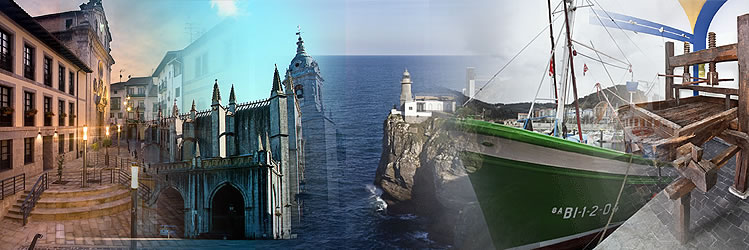Presentation
|
The Marine Heritage Center is a global regulation project intended to reassess our heritage and the community’s natural and cultural resources.
In this way, the Marine Heritage Interpretive Center has a triple function:
Heritage, in addition to being the subject of regulation, is also considered a resource, a dynamic element of the economy and an element that aids in social cohesion. Lastly, its goal is the wellbeing of the citizens of Lekeitio and, at the same time, the development of a competitive goal to be able to comply with touristic expectations. Even so, the regulations designed to achieve community wellbeing are not limited to the field of tourism. They possess general qualities:
The Marine Heritage Interpretive Center project is a broad one with a lofty purpose. The sea, linked to our cultural and patrimonial richness, and the act of educating others about our past while respecting the heritage that we have inherited from our ancestors, requires the participation of all of the groups involved, both public and private. As such, the features common to all seaside towns will remain portals to the not very distance past, but condemned to disappear due to the rhythm of modern life. Furthermore, in order to realize this project, the participation of citizens and entities related to the marine world is indispensable. |









